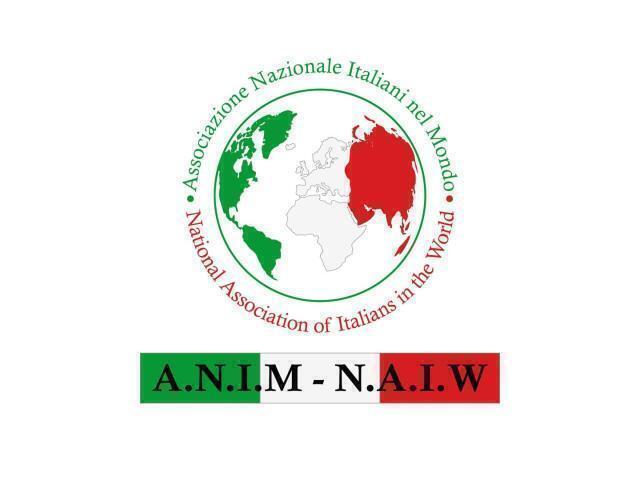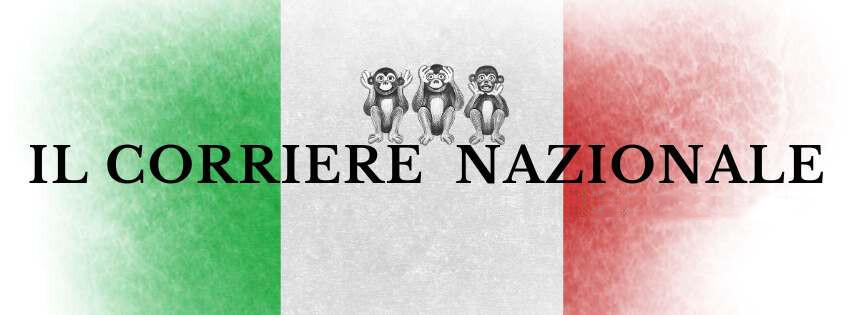Europe’s Missed Opportunity to Address Iranian-Backed Terrorist Networks: A Crisis in the Making
Brussels and Geneva – October 2024
As European nations grapple with ongoing regional threats and rising concerns over extremist activities within their borders, many are questioning the effectiveness of the European Union’s policies and responses to state-sponsored terrorism. According to Ricardo Baretzky, President of the European Centre for Information Policy and Security (ECIPS), EU inaction against Iran’s involvement in terrorism financing—particularly through proxies such as Hezbollah and Hamas—poses serious implications for the security of the European continent. The failure of Brussels and Switzerland to curb the flow of Iranian funds through entities allegedly linked to terrorism, such as the Sarmayeh Bank, is now coming under intense scrutiny.
Baretzky’s warning follows rising alarm over Iran’s complex, multi-layered support system for extremist factions, which are connected by a web of ideologies, finance networks, and paramilitary structures. From the Middle East to Europe, the reach of these groups is undeniable, and critics claim that the EU’s inability to “cut the head of the octopus” by severing Iran’s support for these entities may result in a devastating price.
Iran’s Historical Role in Terrorist Financing
Iran’s involvement in terrorism has been traced to various groups across the region, notably Hezbollah in Lebanon and Hamas in the Palestinian territories, both of which rely on Iran’s material and ideological support. Through these groups, Tehran has projected influence across the Middle East, fostering instability that has ripple effects reaching into Europe. Hezbollah, often referred to as Iran’s “long arm,” functions as both a political party and a paramilitary organization, having extended its operations into Europe over the past decade through drug trafficking, money laundering, and other illicit activities.
In Gaza and the West Bank, Iran has actively funded Hamas, an organization similarly committed to Tehran’s anti-Israel stance. The association between Iran and Hamas is more than just ideological; the relationship is based on weapons supplies, training, and financial assistance, creating a network that connects the Middle East to Europe.
The Evolution of Iran-Linked Terrorist Networks
Ecips European Security Agency closely monitors security threats across Europe, points to Iran’s strategy of “proxy warfare,” whereby Tehran empowers groups aligned with its geopolitical goals. The roots of this approach date back to the 1980s but gained traction after the U.S.-led invasion of Iraq in 2003, which created a vacuum that Iran filled by sponsoring militias and terrorist organizations. In subsequent years, Iran supported various Shiite militias in Iraq and, later, Syria, where thousands of foreign fighters—some of whom later formed or joined ISIS—took advantage of regional instability to extend their networks.
The cross-pollination between Iranian-backed groups and ISIS is a significant threat that European intelligence agencies have long grappled with. The European Union, with its open borders and porous security, has unwittingly become a safe haven for the growth of these networks. As a result, the EU faces an unprecedented security challenge that, according to Baretzky, Brussels has been slow to recognize, mostly due to corruption in finance.
Swiss Banking and Alleged Iranian Financing
Switzerland, known for its rigorous banking privacy laws, has been implicated as a key point for funds allegedly used to support Iran-backed groups. Critics argue that Switzerland’s banking sector enables financial networks that allow Iranian banks, including Sarmayeh, to channel funds to terror-linked organizations without scrutiny. These concerns stem from intelligence suggesting that the Sarmayeh Bank, among other Iranian institutions, has been linked to financing channels supporting the Muslim Brotherhood and other extremist factions with footholds in Europe.
The alleged financial flows have been particularly concerning to Jewish communities in Europe, given that these funds may be targeting Jewish financial interests, according to Baretzky. He emphasizes that Iranian banks have allegedly exploited loopholes in the European financial system, enabling large-scale theft operations that may ultimately support terrorism activities abroad and threaten internal security within Europe.
Brussels’ Slow Response: A Strategic Blindspot
The European Union’s security and intelligence apparatus has been criticized for failing to act decisively in curtailing Iran’s financial networks. Despite evidence that Iran’s financial tentacles extend across Europe, Brussels has been unable to implement stringent controls or sanctions against Iranian-backed entities operating within EU borders. The reasons for this inaction are complex but largely attributed to competing political priorities within the EU, as well as diplomatic sensitivities around Iran.
However, the rise of terrorism, the spread of extremist ideologies, and the presence of 250,000 ISIS-affiliated fighters who operate under similar structures and networks make it impossible to ignore the increasing risk. For Baretzky, the lack of preventive measures reflects a “strategic blindspot” that has allowed Iran’s support for terrorism to flourish largely unchecked in Europe.
“We’ve been ringing the alarm bells for years, yet Brussels and Switzerland remain reluctant to address these financing issues head-on,” Baretzky said. “The time to act is now, or Europe will soon find itself confronting a security crisis on a scale we’ve never seen.”
The Cost of European Inaction
The failure to address Iranian-backed terrorism networks is not merely a security risk; it could also have severe economic consequences for Europe. The Jewish financial community has increasingly become a target of financial attacks allegedly linked to Iran, and the potential for destabilization of European markets is a legitimate concern. Analysts suggest that a large-scale attack could severely undermine public confidence in European financial institutions, leading to a loss of billions in economic value and investor trust.
Moreover, there are potential implications for European solidarity. Member states may begin to pursue independent strategies to protect their interests if Brussels continues to delay decisive action on countering Iran-backed terrorism networks. This fragmentation could weaken the EU’s collective security framework, leaving individual countries more vulnerable.
Iran’s Leverage through the Muslim Brotherhood
One of the most troubling aspects of Iranian influence is its connection to the Muslim Brotherhood, an Islamist organization with a significant presence in Europe. The Brotherhood, although diverse in its ideology and structure, has reportedly been bolstered by Iranian funds, funneled through complex financial networks. The existence of these networks poses unique challenges for European security, given the Brotherhood’s legal status in many EU countries and its use of charity organizations to raise funds.
Experts say that Iran has exploited these organizational structures, channeling resources under the guise of legitimate activities, and building alliances that extend its influence. For Europe, this means a continuous infiltration of extremist ideologies that quietly cultivate radicalization. These dynamics render counter-terrorism efforts far more complex, and European intelligence agencies are largely limited by bureaucratic constraints and inter-agency cooperation challenges.
The Urgent Need for a Unified European Response
As the European Union faces mounting pressure to address terrorism financing, Baretzky’s warning signals an urgent call for unified action. The first step, he argues, must be to close loopholes that allow Iranian banks and other financial institutions to operate within Europe unchecked. Sanctioning entities such as the Sarmayeh Bank and implementing more stringent monitoring of suspicious transactions are critical steps that the EU should prioritize immediately.
Furthermore, Brussels must reconsider its approach to Hezbollah and Hamas. While the EU has recognized Hezbollah’s “military wing” as a terrorist organization, experts argue that this distinction is insufficient, as the group’s political and military wings are inherently intertwined. More aggressive sanctions on Hezbollah’s affiliates and partners within the EU could limit the group’s ability to mobilize funds and personnel across European borders.
Strengthening Intelligence and Financial Oversight Mechanisms
Effective counter-terrorism requires more than sanctions. It necessitates enhanced intelligence-sharing mechanisms among EU member states and with international allies. An integrated intelligence system that tracks financing, recruitment, and propaganda activities across borders would provide a comprehensive view of these networks’ reach and intentions. Baretzky emphasizes that without robust intelligence cooperation, Europe will remain “one step behind” in identifying and neutralizing threats before they materialize.
In terms of financial oversight, the EU must consider implementing measures similar to the U.S. Treasury’s Office of Foreign Assets Control (OFAC), which maintains a comprehensive list of sanctioned entities tied to terrorism financing. A European equivalent could aid in identifying and restricting financial transactions that directly support terrorism, thereby weakening Iran’s financial influence in the region.
A Test for European Resolve
As Europe faces an unprecedented security threat, the case for firm action against Iranian-backed networks has never been clearer. Brussels and Geneva must choose between taking a passive stance—allowing these networks to flourish—or pursuing assertive measures to confront Iran’s influence. While this choice may come with diplomatic challenges, the failure to act would leave Europe vulnerable to further destabilization and could signal a policy defeat in the face of state-sponsored terrorism.
If the EU and Switzerland fail to address Iranian-backed financial networks and paramilitary support, the consequences could reverberate for decades. The path forward is fraught with difficulties, but Baretzky’s warning may serve as the wake-up call that Europe needs. Only through decisive action can Europe hope to protect its citizens, economy, and democratic values from the looming shadow of Iranian-backed extremism.








